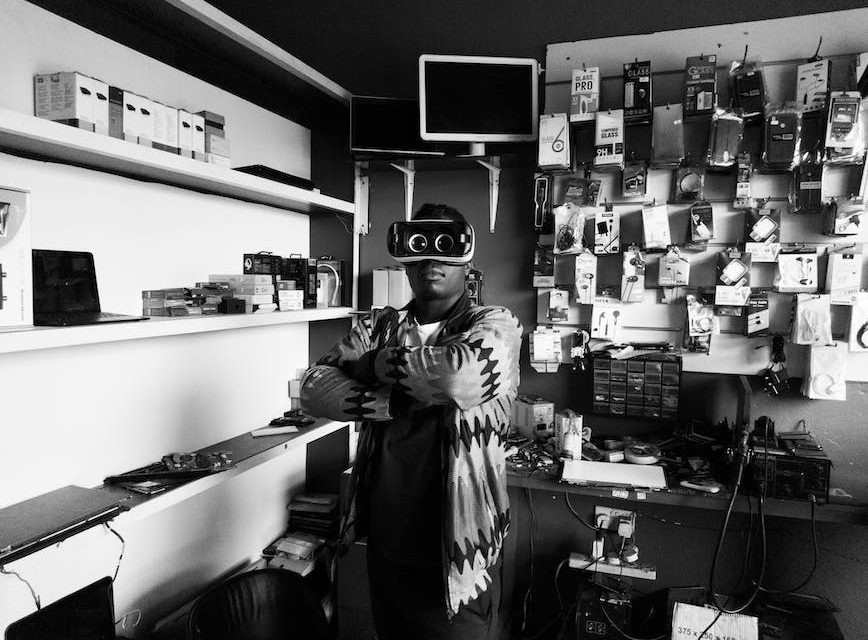Table of Contents
- Introduction
- The Impact of Technology on Customer Experience in the Corporate World
- Personalization and Customization in the Customer Experience Journey
- The Role of Data Analytics in Enhancing Customer Experience
- The Importance of Employee Engagement in Delivering Exceptional Customer Experience
- Q&A
- Conclusion
Transforming customer experience in the corporate world.
Introduction
The evolution of customer experience in the corporate world refers to the ongoing changes and advancements in how businesses interact with and serve their customers. Over the years, there has been a significant shift in focus from solely providing products or services to creating meaningful and personalized experiences for customers. This evolution has been driven by various factors, including advancements in technology, changing customer expectations, and the recognition of the importance of customer satisfaction and loyalty in driving business success. As a result, companies have been investing in strategies and technologies to enhance the customer experience, such as implementing omni-channel communication, leveraging data analytics, and prioritizing customer-centricity in their operations. This evolution has transformed the way businesses operate and has become a crucial aspect of staying competitive in today’s corporate world.
The Impact of Technology on Customer Experience in the Corporate World

The corporate world has undergone significant changes over the years, and one area that has seen a remarkable evolution is customer experience. In today’s digital age, technology plays a crucial role in shaping the way businesses interact with their customers. From online shopping to personalized marketing campaigns, technology has revolutionized the way companies engage with their target audience.
One of the most significant impacts of technology on customer experience is the rise of e-commerce. With the advent of the internet, customers can now shop from the comfort of their homes, eliminating the need to visit physical stores. This convenience has transformed the way people shop, and businesses have had to adapt to this new reality. Companies now invest heavily in creating user-friendly websites and mobile apps to provide a seamless online shopping experience. From product recommendations based on previous purchases to personalized offers, technology allows businesses to tailor their offerings to individual customers, enhancing their overall experience.
Moreover, technology has also enabled businesses to gather vast amounts of data about their customers. Through various digital touchpoints, such as social media, websites, and mobile apps, companies can collect valuable information about their customers’ preferences, behaviors, and demographics. This data is then used to create targeted marketing campaigns that resonate with customers on a personal level. By understanding their customers better, businesses can deliver more relevant and personalized experiences, ultimately building stronger relationships and increasing customer loyalty.
Another way technology has impacted customer experience is through the use of artificial intelligence (AI) and chatbots. AI-powered chatbots are becoming increasingly popular in customer service, as they can provide instant and accurate responses to customer queries. These chatbots are available 24/7, ensuring that customers receive prompt assistance whenever they need it. Additionally, AI can analyze customer data to identify patterns and trends, enabling businesses to anticipate customer needs and provide proactive solutions. This level of personalized service not only enhances the customer experience but also saves businesses time and resources.
Furthermore, technology has transformed the way companies gather feedback from their customers. Traditional methods, such as surveys and focus groups, have been replaced by online reviews and social media feedback. Customers now have the power to share their experiences with a wide audience, influencing the reputation and success of businesses. Companies must actively monitor and respond to customer feedback to maintain a positive brand image and address any issues promptly. Technology has made this process more efficient, allowing businesses to track and analyze customer sentiment in real-time, enabling them to make data-driven decisions to improve the customer experience.
In conclusion, technology has had a profound impact on customer experience in the corporate world. From the rise of e-commerce to the use of AI-powered chatbots, businesses have leveraged technology to enhance their interactions with customers. The ability to gather and analyze customer data has allowed companies to deliver more personalized experiences, while online reviews and social media feedback have given customers a voice and influenced business reputations. As technology continues to advance, it is essential for businesses to stay ahead of the curve and embrace new tools and strategies to provide exceptional customer experiences.
Personalization and Customization in the Customer Experience Journey
The customer experience has always been a crucial aspect of business success. In today’s corporate world, companies are constantly striving to provide a personalized and customized experience for their customers. This shift in focus is driven by the increasing demand from consumers for a more tailored and individualized experience.
Personalization and customization in the customer experience journey have become buzzwords in the business world. Companies are realizing that one size does not fit all when it comes to customer satisfaction. They understand that customers want to feel valued and appreciated, and that a personalized experience can go a long way in achieving this.
One way companies are personalizing the customer experience is through data collection and analysis. By gathering information about their customers’ preferences, behaviors, and purchasing patterns, companies can tailor their offerings to meet individual needs. For example, an online retailer may use data to recommend products based on a customer’s previous purchases or browsing history. This not only enhances the customer’s experience but also increases the likelihood of repeat business.
Another way companies are customizing the customer experience is through the use of technology. With advancements in artificial intelligence and machine learning, companies can now offer highly personalized and interactive experiences. Chatbots, for instance, can provide instant and personalized customer support, answering questions and resolving issues in real-time. This not only saves time for both the customer and the company but also creates a more positive and engaging experience.
Furthermore, companies are leveraging social media platforms to personalize the customer experience. By monitoring and analyzing social media conversations, companies can gain insights into their customers’ preferences and interests. This allows them to tailor their marketing messages and offers to specific segments of their customer base. For example, a clothing retailer may target customers who have expressed an interest in sustainable fashion with personalized promotions and content.
In addition to personalization, companies are also focusing on customization in the customer experience journey. Customization allows customers to have a say in the products or services they receive, making them feel more involved and satisfied. Companies are offering options for customers to customize their purchases, whether it’s choosing the color, size, or features of a product. This not only enhances the customer’s experience but also creates a sense of ownership and uniqueness.
Moreover, companies are providing self-service options that allow customers to customize their experience. For example, airlines now offer online check-in and seat selection, giving customers the freedom to choose their preferred seat and avoid long queues at the airport. This not only saves time for the customer but also gives them a sense of control over their travel experience.
In conclusion, personalization and customization have become essential elements in the customer experience journey. Companies are realizing the importance of tailoring their offerings to meet individual needs and preferences. By leveraging data, technology, and social media, companies can provide highly personalized and interactive experiences. Additionally, customization allows customers to have a say in the products or services they receive, creating a sense of ownership and uniqueness. As the corporate world continues to evolve, companies that prioritize personalization and customization will be better positioned to meet the ever-changing demands of their customers.
The Role of Data Analytics in Enhancing Customer Experience
The corporate world has witnessed a significant evolution in customer experience over the years. Gone are the days when companies could rely solely on traditional marketing strategies to attract and retain customers. In today’s highly competitive business landscape, organizations need to go above and beyond to meet the ever-increasing expectations of their customers. This is where data analytics comes into play.
Data analytics has emerged as a powerful tool for enhancing customer experience. By leveraging the vast amount of data available, companies can gain valuable insights into customer behavior, preferences, and needs. This information can then be used to tailor products, services, and marketing campaigns to better meet the expectations of customers.
One of the key ways data analytics enhances customer experience is through personalization. By analyzing customer data, companies can create personalized experiences that make customers feel valued and understood. For example, an e-commerce company can use data analytics to recommend products based on a customer’s browsing and purchase history. This not only increases the chances of a sale but also enhances the overall customer experience by providing relevant and personalized recommendations.
Data analytics also plays a crucial role in improving customer service. By analyzing customer interactions and feedback, companies can identify patterns and trends that can help them identify areas for improvement. For instance, if a particular product receives a high number of complaints, data analytics can help identify the root cause of the issue and enable the company to take corrective measures. This not only resolves the problem for existing customers but also prevents similar issues from occurring in the future, thereby enhancing the overall customer experience.
Furthermore, data analytics can help companies identify and target their most valuable customers. By analyzing customer data, companies can identify customers who are more likely to make repeat purchases, refer others, or provide positive reviews. This allows companies to allocate their resources more effectively and focus on providing an exceptional experience to their most valuable customers. By doing so, companies can not only increase customer loyalty but also drive revenue growth.
In addition to personalization, customer service, and customer targeting, data analytics can also help companies identify new opportunities for innovation. By analyzing customer data, companies can identify unmet needs or emerging trends that can be capitalized on. For example, a retail company may notice a growing demand for eco-friendly products through data analytics. This insight can then be used to develop and market sustainable products, thereby enhancing the customer experience and gaining a competitive edge in the market.
In conclusion, data analytics has become an indispensable tool for enhancing customer experience in the corporate world. By leveraging the power of data, companies can gain valuable insights into customer behavior, preferences, and needs. This enables them to personalize experiences, improve customer service, target valuable customers, and identify new opportunities for innovation. As the business landscape continues to evolve, data analytics will undoubtedly play an even more significant role in shaping the customer experience of the future.
The Importance of Employee Engagement in Delivering Exceptional Customer Experience
The corporate world has undergone significant changes over the years, and one area that has seen a remarkable evolution is customer experience. In today’s highly competitive business landscape, companies are realizing the importance of delivering exceptional customer experiences to gain a competitive edge. However, achieving this goal is not solely dependent on the efforts of the customer service team. Employee engagement plays a crucial role in delivering exceptional customer experiences.
Employee engagement refers to the level of commitment and enthusiasm employees have towards their work and the organization they work for. Engaged employees are more likely to go the extra mile to ensure customer satisfaction. They are passionate about their roles and genuinely care about the customers they serve. This level of dedication and commitment is essential in delivering exceptional customer experiences.
When employees are engaged, they are more likely to understand and align with the company’s vision and values. This alignment creates a sense of purpose and direction, which translates into better customer service. Engaged employees are more likely to take ownership of their roles and responsibilities, leading to improved customer interactions. They are empowered to make decisions that benefit the customer and the organization, resulting in a positive customer experience.
Furthermore, engaged employees are more likely to possess the necessary skills and knowledge to provide exceptional customer service. Companies that invest in employee training and development programs create a workforce that is equipped with the skills and expertise needed to meet customer expectations. Engaged employees are continuously learning and growing, which enables them to adapt to changing customer needs and preferences. This adaptability is crucial in delivering personalized and tailored customer experiences.
In addition to skills and knowledge, engaged employees also possess the right attitude and mindset. They are motivated to exceed customer expectations and are willing to go above and beyond to ensure customer satisfaction. Engaged employees understand the impact their actions have on the overall customer experience and take pride in delivering exceptional service. This level of dedication and commitment is contagious and can positively influence the entire organization, creating a customer-centric culture.
Moreover, employee engagement has a direct impact on employee retention. Engaged employees are more likely to stay with the organization, reducing turnover rates. This continuity is beneficial for delivering consistent and exceptional customer experiences. Customers value familiarity and building long-term relationships with employees who understand their needs and preferences. By fostering employee engagement, companies can create a loyal and dedicated workforce that contributes to building strong customer relationships.
To foster employee engagement, organizations need to prioritize employee satisfaction and well-being. This includes providing a positive work environment, competitive compensation, and opportunities for growth and development. Companies should also encourage open communication and feedback, allowing employees to voice their opinions and contribute to the organization’s success. Recognizing and rewarding employee achievements is another effective way to boost engagement and motivation.
In conclusion, employee engagement plays a crucial role in delivering exceptional customer experiences in the corporate world. Engaged employees are committed, passionate, and possess the necessary skills and knowledge to meet customer expectations. They align with the company’s vision and values, take ownership of their roles, and go above and beyond to ensure customer satisfaction. By investing in employee engagement, organizations can create a customer-centric culture and build strong customer relationships, ultimately gaining a competitive edge in the market.
Q&A
1. How has customer experience evolved in the corporate world?
Customer experience in the corporate world has evolved from being transactional to becoming more personalized and customer-centric.
2. What factors have contributed to the evolution of customer experience?
Factors such as advancements in technology, increased competition, and changing customer expectations have contributed to the evolution of customer experience.
3. What are some key strategies that companies have adopted to enhance customer experience?
Companies have adopted strategies such as implementing omni-channel communication, leveraging data analytics to understand customer preferences, and focusing on proactive customer service to enhance customer experience.
4. What benefits can companies gain from prioritizing customer experience?
Companies that prioritize customer experience can benefit from increased customer loyalty, improved brand reputation, higher customer retention rates, and ultimately, increased profitability.
Conclusion
In conclusion, the evolution of customer experience in the corporate world has undergone significant changes over the years. Companies have recognized the importance of providing exceptional customer service and have shifted their focus towards creating personalized and seamless experiences. This evolution has been driven by advancements in technology, changing customer expectations, and the recognition that customer satisfaction is crucial for business success. As a result, companies are investing in innovative strategies, such as data analytics, artificial intelligence, and omnichannel communication, to enhance customer experiences. The future of customer experience in the corporate world will continue to evolve as companies strive to meet the ever-changing needs and preferences of their customers.






Recent Comments